Science
Statement of intent
Our stimulating Science curriculum is designed to encourage creativity, problem solving, resilience, proactive thinking and collaboration.
At Sylvester Primary Academy, we use the PLAN assessment materials to support teacher planning of Science, ensuring that there is clear progression in the development of key scientific knowledge, concepts and vocabulary from EYFS to Year 6 in the specific disciplines of Biology, Chemistry and Physics.
Each Science topic is introduced through the use of a knowledge organiser, building on children’s prior learning. Units then include a range of activities which enable the children to develop both their scientific understanding and their mastery of the nature, processes and method of science, as well as an intense focus on developing scientific vocabulary. Disciplinary skills and working scientifically skills are taught through scientific enquiry with children working to answer key scientific questions and develop their practical skills. In each unit of study, the emphasis is on the children learning by doing.
Our curriculum is designed to allow children to become confident, critical thinkers with the key skills and knowledge to help them to answer scientific questions about the world around them.
We provide a wealth of enrichment opportunities in Science to engage learners and to inspire all children to be confident, curious and passionate about Science.
How we teach Science
Children receive a two-hour session of quality Science teaching per week in Key Stage 2 and a one and one-half hour lesson per week in Key Stage 1, with topics typically lasting 6-8 weeks. Opportunities to develop key scientific knowledge, conceptual understanding, key scientific vocabulary, practical and disciplinary skills are incorporated into each topic. As well as opportunities to develop children’s reading, writing and mathematical skills.
Across each year group children will have the opportunity to access all five scientific enquiry types. These are:
- Observation over time – observing how living things, materials and physical processes change over time. These observations may take place over different time spans from minutes to months.
- Comparative and fair testing – looking for causal relationships between two variables.
- Identifying and classifying – naming things and/or sorting them into groups. This may be done by carrying out a simple test or using secondary sources.
- Pattern seeking – Looking for links between variables where there is no causal relationship. This can include looking for patterns when observing or within data from secondary sources.
- Researching using secondary sources – for questions that cannot be answered by pupils using first-hand experiences.
Each topic begins with a child friendly knowledge organiser outlining key learning, vocabulary and links to prior learning. During each topic children will learn to; ask scientific questions, plan an enquiry, observe closely, take measurements, gather and record results, present results and interpret results. Children in KS2 will also learn to make predictions, draw conclusions and evaluate an enquiry.
Curriculum Overview
Please view our long-term whole school overview for science.
SEND Adaptations
Science lessons at Sylvester are fully inclusive and aim to meet the specific, individual needs of all children across the school. We aim to ensure that children with SEND are fully engaged and challenged in science lessons. Teachers use a wide variety of differentiation and pedagogical strategies to help achieve full inclusivity. Strategies include pre-teaching key vocabulary and utilising our Science Working Walls to support cognition and learning, carefully considering sensory experiences such as handling different fabrics and working with different smells giving children the opportunity to explore such materials before any enquiries, and facilitating a wide range of opportunities for children to explain their learning including verbally through videos and demonstrations.
Curriculum Enrichment
Knowsley Central Ogden Trust Schools Partnership
Pupils at Sylvester had access to a wide range of curriculum enrichment opportunities for Science. Our school is the lead school for the Knowsley Central Ogden Trust Schools Partnership, working with 19 local schools to deliver a wide range of physics enrichment opportunities. Click here to find out more about our amazing physics events this year!
Edina Trust Bulb Project 2023-2024
Year 5 take part in the Edina Trust Bulb Project. The 'Spring Bulbs for Schools' project gives pupils the opportunity to be part of a real science investigation where they will contribute to the final result. This is a live experiment where there are no known outcomes and no "right" answers, investigating the effect of the climate on the growth of the spring bulbs.
Children each planted their own daffodil bulb and additional daffodil bulbs and crocus bulbs in our Eco Garden. Each day, Year 5 recorded the rainfall and temperature from October until March. They watched their plants grown, recording when they flowered and the height of the plant when the flower opened. We are investigating the effect of the climate on the growth of the spring bulbs.
In May we were provided with the results of the project, comparing the flowering dates and heights along with the weather recordings from across the UK. We were able to look at the differences between each country and discussed why daffodils might have flowered sooner in some areas than others.
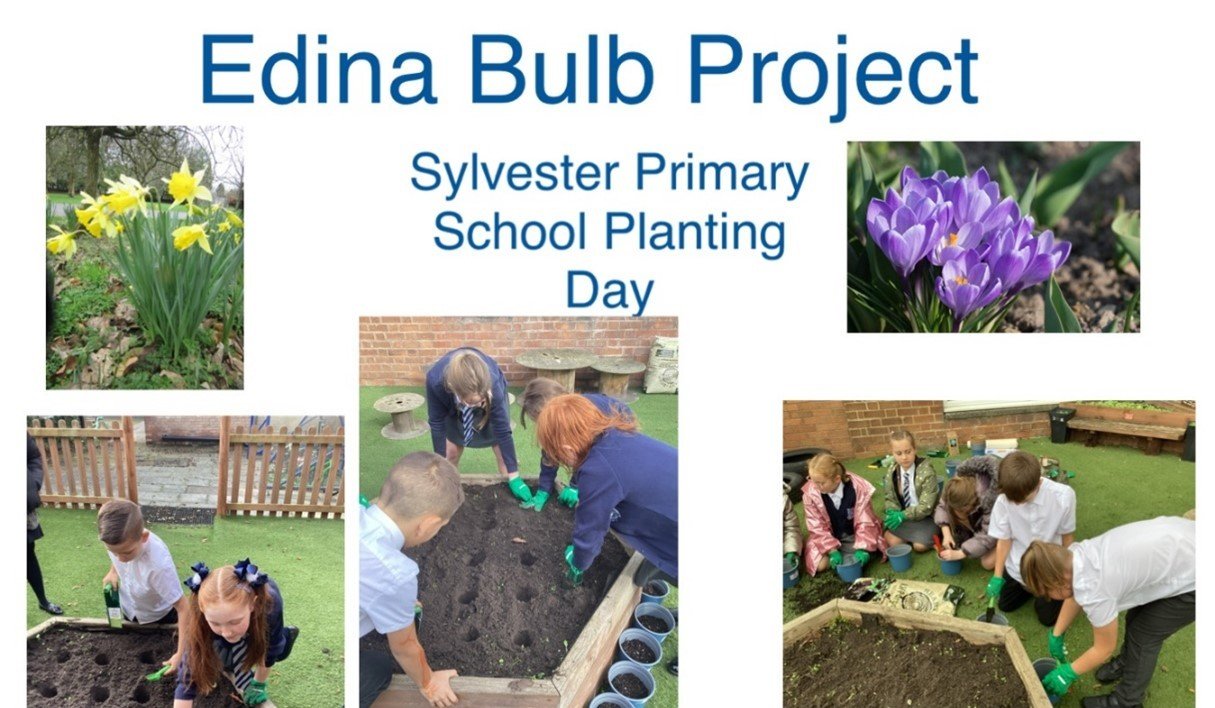
Whole School Tree planting Day
On Thursday 30th November, our whole school worked together to plant 120 tree saplings from Woodlands Trust. Creating a new hedgerow on our school grows for outdoor learning and to provided a habitat for local wildlife. We had an amazing day and lots of families came to join in with the event.
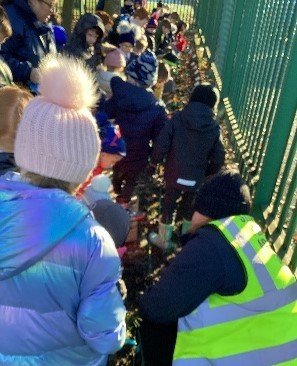
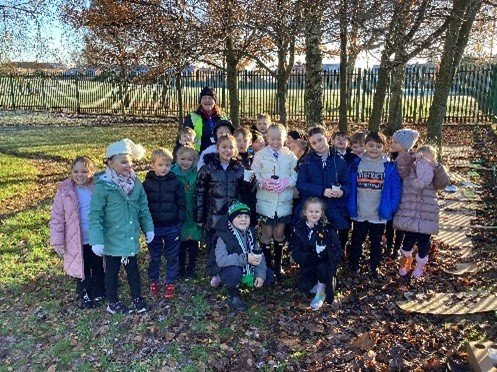

Our trees are making great progress! Here are some photographs from April. Look at these amazing leaves!

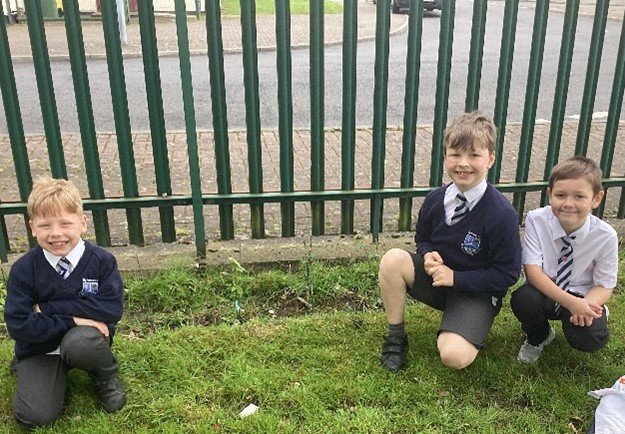
Mad Science Assemblies
This year, we have had two assemblies from Mad Science funded by United Utilities
Our first assembly in January ‘Stop the Block!’ taught the children all about materials and how the are affected by water, we explored which ones would dissolve and which would not.
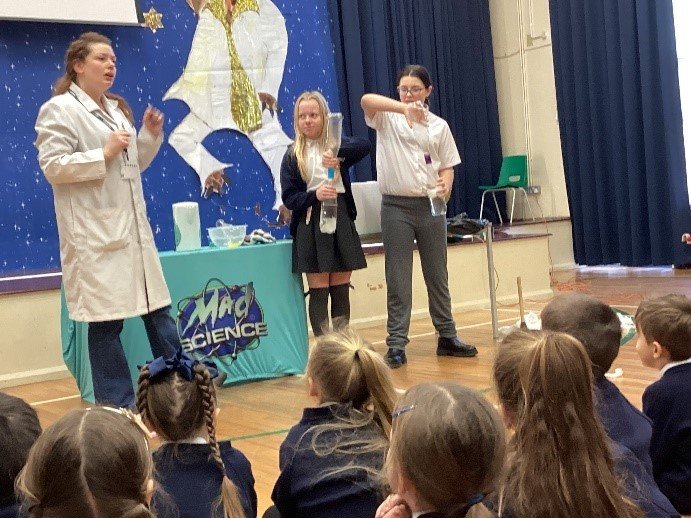
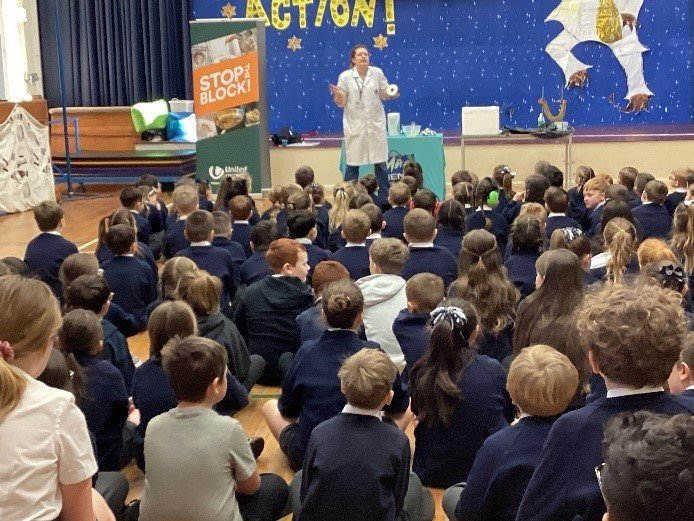
In April, Mad Science returned to teach us all about the water cycle.

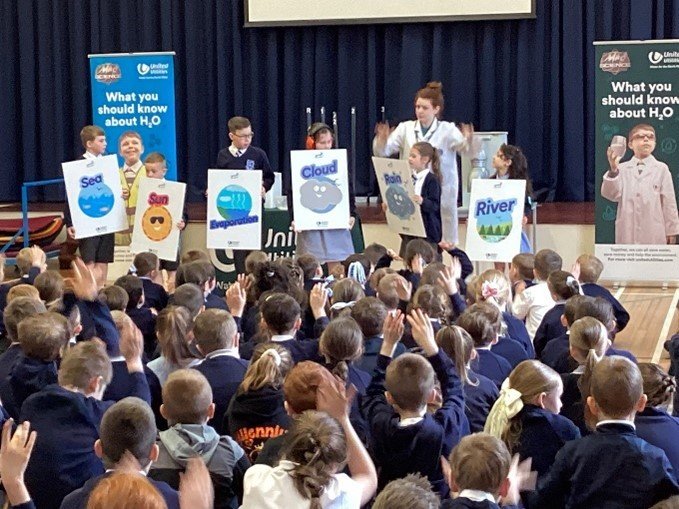
Imagine That! Visit
Children from Key Stage One had a brilliant visit to Imagine That! Science and Discovery Centre. Children we able to explore lots of practical science activities and materials creating their own slime, magnets and bath bombs to take home.
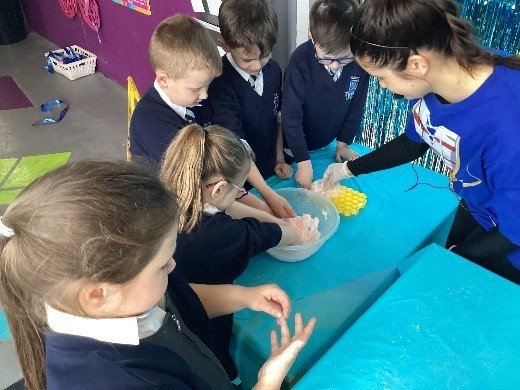

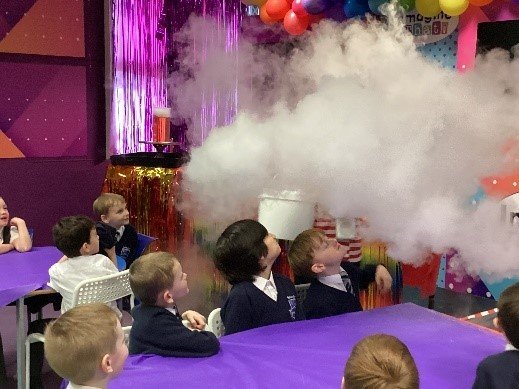
Tree Planting in the Community
On 14th March, Sylvester were invited to take part in a community tree planting event on Cowper way. A group of children from Year 3 and Year 4 worked with Knowsley Council to plant trees as part of the Mersey Forest.




